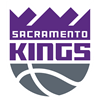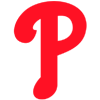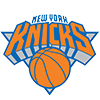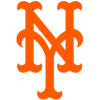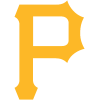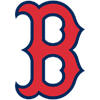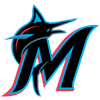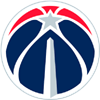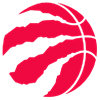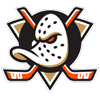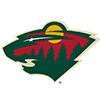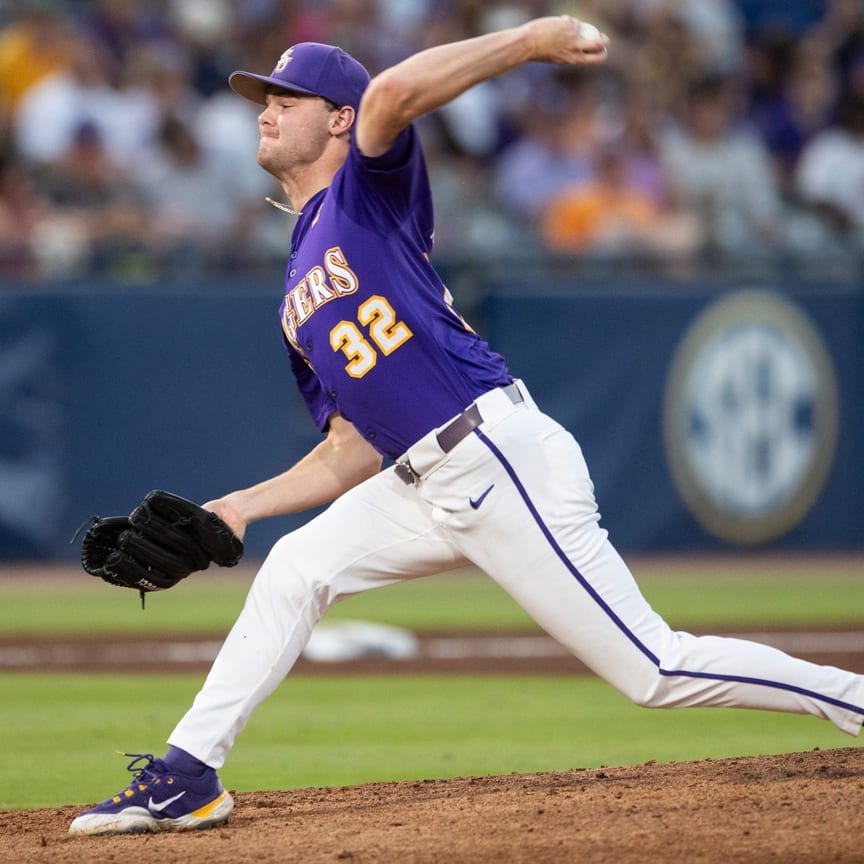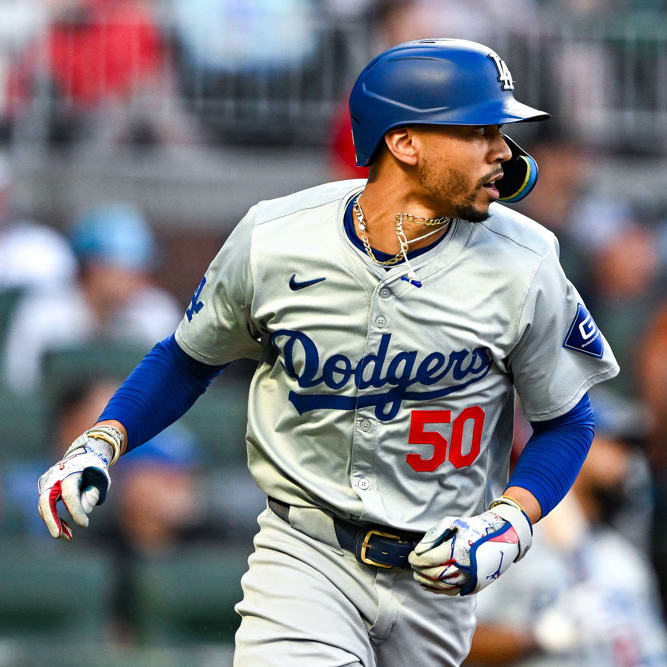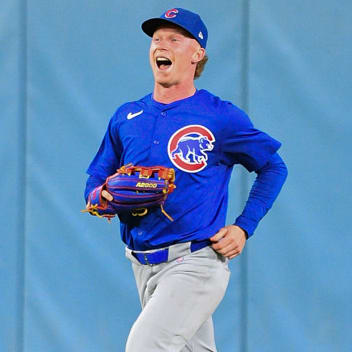Christmas has long since passed, but the month of March sure feels like an extended holiday for us fantasy baseball fanatics. Box scores, position battles, players to track, and baseball on TV! As we prepare for our big drafts this month, it's imperative to do so in an organized fashion and to operate with the discipline required to put us in an optimal position to start the year. Here are a few of my preseason tenets:
Take notes – Whether it's a notebook or a computer document, have a home base where you're able to jot down thoughts. This isn't just roster or position-battle notes; perhaps you've recognized a certain starting pitcher is working with a top-notch pitching coach, has a new arm slot, is working on a new offering, or has added more velocity to his fastball. Whatever you decide to track, having a document to refer to throughout the spring can help you figure out how you really feel about an otherwise tough-to-project player.
Keep tabs on the noise – Many wise fantasy folk tell you to avoid obsessing over spring training details, but in my humble opinion, they mostly mean the box scores. Many hurlers experiment with new pitches in the spring, and it would be misleading to downgrade a good pitcher because he blew up for six runs over three innings in a somewhat meaningless outing. If a guy has an injury scare or is throwing at a much lower velocity than the previous season, then you've got yourself a legitimate reason for downgrade. We're told to avoid Pablo Sandovalitis ("I'm in the best shape of my life" quotes), but keeping an eye on weight gain (Noah Syndergaard, Cesar Hernandez, Corey Dickerson) is wise, especially if we believe that player is focused on producing more power this season. Be astute and separate the noise from notes and manager quotes than can be helpful in your prep.
Follow ADP Trends – The last thing you want is to be grazing with the rest of the sheep (we have none of those here) before the season begins. By now, many of us can recite the top 50 by ADP without looking, but we know that the top 50 pre-draft rarely resembles the top 50 come October. It's vital to ingrain our own thoughts on where players should be taken in drafts before the ADP itself is firmly lodged deep in our subconscious.
I always start my prep by creating a VDP (you guessed it, Vlad's Draft Position) to determine positional tiers and where guys should go among the overall player pool. This is where I easily identify the players I deem to be market inefficiencies (players mispriced based on groupthink). Building this list on my own is what led me to drafting Mark Teixeira and Kendrys Morales everywhere in 2015, then Jake Lamb in 2016, and it's how I came to the conclusion that I'll probably take David Peralta in the 18th round or later in every draft this year (if I don't get sniped).
Just paying attention to early spring chatter among high-stakes players and watching some drafts, it's clear that James Paxton, for instance, is currently underpriced. You'll see this reflected in a quickly upward-trending ADP over the next few weeks. The rub is that sometimes these helium players reach a point where they've lost most of their draft value. Paxton at his 180 ADP feels like a steal if you believe in the southpaw's health and strikeout rate. But out of 108 NFBC drafts to date, Paxton has been taken as high as 109th overall, which means that draft likely saw him get picked ahead of Jose Quintana, Julio Teheran and last year's AL Cy Young winner Rick Porcello. Hey, if you think Paxton beats those guys out this year, then perhaps your early selection is justified. Just figure out how badly you want Paxton. When you reach for him ahead of his ADP, make sure it's a calculated move that isn't, say, 50 picks ahead of current ADP. Sometimes we must have "our guys," but we're often passing on a better fit for our team when we could still get our guy with our next pick or even two rounds later. It's a game of Draft Pick Chicken when you're making assumptions regarding whom people drafting around you may select based on their current roster and upcoming needs. But it's a game we must play so that we don't turn into rigid, ice-cold ADP draft robots.
Prep with Draft-and-Hold Slow Drafts – If you didn't already know, Draft-and-Hold (DnH) leagues are the new mock drafts. Mock drafts always present that possibility that 17-year old Billy from the South Side takes Javier Baez first overall because he's an immature, diehard Cubbies fan who wants to screw up the whole draft… just because he can. DnH Slow Drafts on NFBC and even Fantrax are usually filled with folks like you and me – those who truly want to get a feel ADP and draft flow and improve their chances of succeeding for their timed drafts later this month. The extended clock provides us with the opportunity to slow down our thought process and critically assess our options. Best of all, DnH leagues don't allow free agent pickups during the season. Who you draft is who you get, injuries and all. So they keep you more in tune with injury news and (hopefully) help train you to downgrade or outright avoid players with long injury histories or major injuries currently bubbling up. It truly helps build discipline while getting us more comfortable with our options in, say, Round 19 of our real drafts. If you haven't tried one yet, I highly recommend it.
For this first installment of the Barometer, I wanted to briefly run some catchers and first basemen who may be underpriced. In some cases, it's a player who underperformed last year, perhaps because of injury that lingered. Other times, it's simply a boring, predictable player we don't deem to be a "sexy" pick. Still other times, names simply get lost in the shuffle.
Here are a few potentially mispriced players worth targeting this season:
Catcher
It probably feels this way every year, but the catcher pool is truly abysmal this season. We've got our clear top three (Buster Posey, Jonathan Lucroy, Gary Sanchez) who are all gone by the fifth round in 15-team leagues, and then there's a massive drop off. Everyone has different strategies, but I know two things: I don't want my batting average to be dragged down by my catchers, and I don't mind waiting until the end of the draft for my second catcher. A guy like J.T. Realmuto (NFBC ADP: 112) is a perfect fit, as his solid contact profile will likely lead to a helpful batting average and the added bonus of a dozen or so stolen bases. If I'm not in a position to grab one of the big three, I'm targeting Realmuto and assessing from there. There are a handful of super-late-round catchers in bounce-back spots that I'm willing to take a chance on as my second backstop based on what I see this spring.
Travis d'Arnaud, Mets (ADP: 293)
Well, the Mets didn't cut him and he appears to be their primary guy behind the plate, so there's a start. D'Arnaud has always found a way to get hurt over his short four-year career, appearing in more than 100 games just one time thus far, but he was once a high pedigree prospect in the Blue Jays' minor league system who was supposed to be a force with the long ball based on minor league numbers. He did crush 12 out over 268 plate appearances two seasons ago, in between two extended DL trips and a myriad of ailments. Manager Terry Collins has said that he'd like to see TDA play at least 100 games this year, which would be considered a big win for him. His home park may not be ideal, but the now 28-year-old d'Arnaud is certainly capable of turning his career around, swatting 15-plus homers and providing a respectable average somewhere in the .250 to .270 range this season. He's someone you may want to pass on in DnH leagues for obvious injury-related concerns, but it's hard not to consider him as your late-round second catcher this year. After all, he's got first-round pedigree with talent that has yet to truly manifest at the big league level. At this season's cheap price tag, d'Arnaud may be worth exploring.
Yan Gomes, Indians (ADP: 312)
Surely baseball's worst hitter in 2016 would have at least somewhat crawled out of that despicable three-month slump if not for the separated AC joint he suffered right before the All-Star break. When the injury hit, Gomes was batting a solid 33 points under the Mendoza Line (.167), which is something we rarely see out of a full-time ball player. It also took a team sacrifice on his behalf in the name of Jobu (from Major League) to break him out of an 0-for-27 slump. But if signs point to his shoulder being healed and he's steadily progressing in the spring, Gomes could end up being quite the sneaky value. He regressed significantly over his 95 games in 2015 (.231 BA, 27 percent strikeout rate) from his career-best 2014 campaign, in which he produced a fine line (.278 with 21 homers and 74 RBI with a 23 percent whiff rate). Gomes even helped fantasy squads tremendously in 2013 by hitting .294 in 322 plate appearances – the half season that put him on our radar. I don't believe the 29-year old is toast quite yet. And though he missed the magic of last year's playoff run, he's part of a strong, competitive Indians club that added veteran Edwin Encarnacion in the offseason and needs a focused and productive behind the plate. I do expect Gomes' ADP to rise with any sort of positive news this spring, but the helium is limited with late-round catchers. I don't want to use the word "free" per se, but he could end up being one heck of a bargain in the 21st round of your 15-teamer (or your second-to-last pick in a 12-teamer).
Honorable Mentions:
Jett Bandy (ADP: 401) & Andrew Susac (ADP: 409), Brewers
Sage roto players tend to separate emotion from the equation and treat fantasy baseball like a business (a business based on fun, of course). So it's hard for me not to have a special place in my heart for Bandy last season, as I seemed to time him very well in DFS in the middle of last summer. Bandy doesn't have the pedigree of Susac, though. Susac may finally get an opportunity to show what he's capable of now that he's out of Buster Posey's shadow, which kept him from playing much in San Francisco. Bandy has more pop in his bat, but he's less disciplined at the plate. Susac is the better defender and pitch framer; as such, he'll probably be mixed into the lineup a bit more frequently early in the year. But until we see or read it for ourselves, this is all speculation. Manny Pina is also in the picture here, but he's more likely the third wheel to start the year. Nevertheless, Bandy and Susac are dirt cheap. Ideally, you pay attention closely, make the right assumption and draft accordingly. Perhaps you get rewarded with a 70-30 timeshare in favor of the guy you drafted. Someone behind the plate in Milwaukee is going to heftily out-earn his draft spot this year. If I had to pick one, my choice would be Susac.
First Base
Jose Abreu, White Sox (ADP: 62)
What's a guy in the top 100 doing on this list of potentially undervalued assets? It's simply the fact that we have one of baseball's most consistent contact hitters since the beginning of his major league career – and a perennial second-rounder – now available in the fifth round. Speaking of consistency, he was anything but in 2016. Well, he was consistently subpar in the first half (0.29 BB/K, 20.3 K%, .158 ISO, .272 BA) and consistently good (read: improved) over the second half (0.52 BB/K, 15.2 K%, .195 ISO, .319 BA). The fact is that Abreu has been consistent over the course of three full major league seasons, averaging 30.3 homers and 103 RBI along with a whopping 675 plate appearances per season. Given how weak the team around him is projected to be in terms of R and RBI opportunities, I can understand Abreu dropping a round or perhaps even two, but not three. It's not a major market inefficiency, but Abreu's current price tag is a tad too low. Eight times out of 10, your league mates will opt for Wil Myers in that range if they're looking to fill their 1B slot. But if your roster's need at that time is some batting average and you're flush with stolen bases, Abreu is the guy to grab.
Mitch Moreland, Red Sox (ADP: 339)
There's only one hitter on Boston's active roster who has smashed at least 20 dingers in three of his last four seasons. David Ortiz is retired; Hanley Ramirez and Dustin Pedroia didn't do it; Mookie Betts is just entering his third full season. So who is it? None other than Masher Mitch, whose lone season falling short of 20 over this four-year span was an injury-plagued campaign in which he appeared in just 52 games. Playing in Boston should provide plentiful opportunities for Moreland to drive in runs, and he will certainly see his fair share of talent-deficient targets disguised as major league pitchers in the AL East. Even at a standard, conservative projection, Moreland is underpriced. If you think he's capable of matching his .278 average with 23 homers and 85 RBI in 132 games from 2014, then you've got yourself one hell of a bargain – perhaps your late-round rebound Morales or Teixeira of 2017. If his ADP doesn't start rising over the next several weeks, we're going to have to start drug testing NFBC players.
Honorable Mention:
Steve Pearce, Blue Jays (ADP: 404)
Pearce isn't currently being drafted among the top 360 in standard 12-team, 30-round NFBC RotoWire Online Championships, but perhaps he should be. In fact, I snagged Pearce in the 29th round of my OC draft on Sunday night when I needed a CI after a barrage of picks removed Travis Shaw, Justin Bour and Yangervis Solarte from my queue. The 33-year old veteran has only appeared in 100-plus games once in his career, as he's usually been relegated to utility roles. Pearce is a lefty masher who appears to be aging like a fine Merlot – he hit .317 against southpaws last year and .327 against them in 2014 (with a fluky .196 against them in 2015). There may be more playing time for Pearce with the Jays than meets the eye given his versatility, an unsettled outfield situation (including the aging and oft-injured Bautista), and the fact that Justin Smoak should not be a starting major league first baseman. Sharp NFBC vets likely already have their eyes on Pearce for the later rounds, especially in a format with twice-weekly lineup changes that'll allow us to bring him into our lineups weekends that see the Jays face two lefties.
Next week, I'll cover undervalued options for the rest of the infield (2B, 3B, SS) followed by outfielders and pitchers in the following weeks as we round into game shape for Opening Day.








